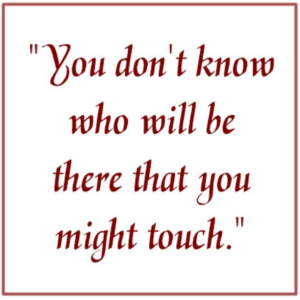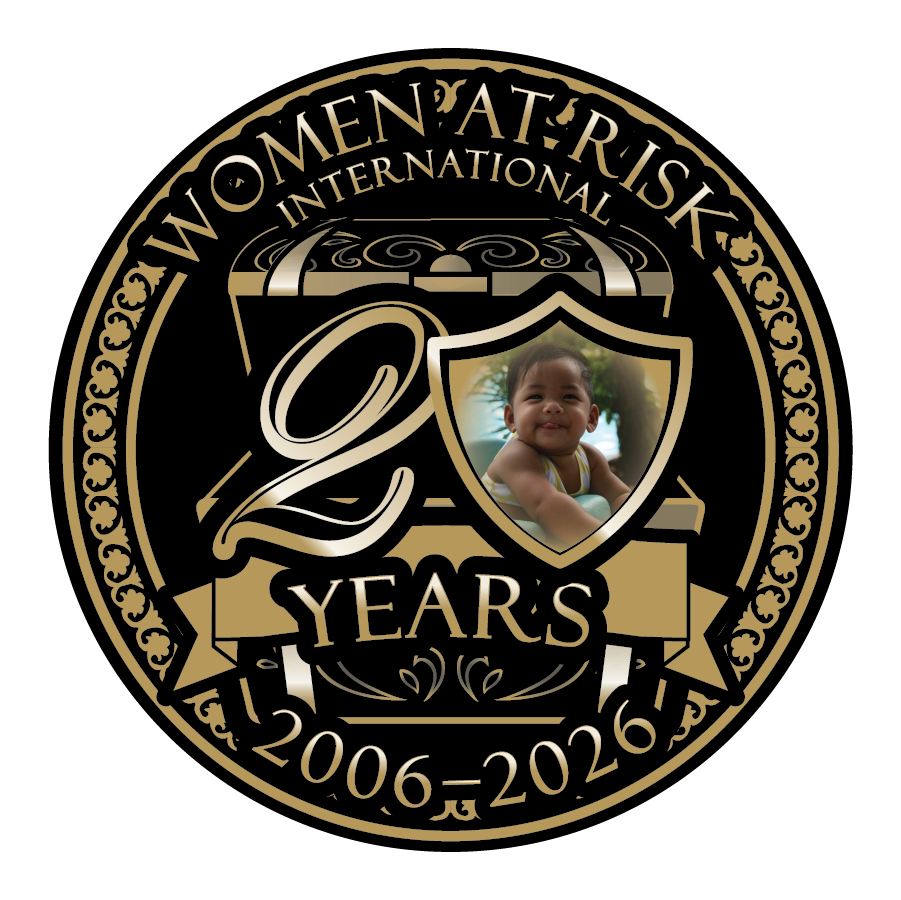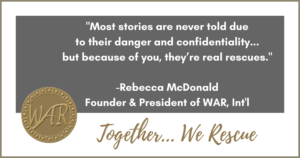Liz Midkiff had a simple yet profound vision: fight human trafficking through educating young women. The first program started in August 2013 in Ohio and then progressed to New York in 2018. In 2019, Liz started branching out to other states. After an excruciating past as a young woman, as an adult she desired to do something more than just raise awareness for the cause (as important as that is). So, she began teaching the girls in her youth group to be watchful in their daily lives, empowering them to develop holistic tools to notice when the signs of trafficking are going on around them and to help others who might be at risk. She spent time with the teenagers and did research about human trafficking, all the while knowing the brutal fact of the matter: this issue wasn’t a rare phenomenon in some distant country. People were being trafficked every day, right under people’s noses. And yes, this was occurring even in the “Land of the Free.”
Eleven years later, amidst her ongoing initiatives for teenagers, her five-year-old son asked, “Mom, why don’t other kids know about the work you are doing?” So, out of a desire to educate the next generation on the issues of human trafficking, Liz and Rebecca McDonald, resident and founder of Women At Risk, International (WAR, Int’l) founded S.T.A.N.D. classes, which stands (no pun intended) for Safety Awareness, Trafficking signs, Age Appropriate, No (Okay to say no), and Determination.

Through the S.T.A.N.D. classes, Liz desires that parents see the importance of educating their children on topics such as the inherent dignity of every human and the need for physical safety for overall well-being. In other words, while the theme of the sessions is undoubtedly tied to the topic of human trafficking, Liz makes it a point to cover much more than trafficking itself. Additionally, while S.T.A.N.D. classes are just that—classes—they encompass much more than what someone might picture with a teacher speaking to students at desks. Instead, Liz employs games, interactive activities, and question-and-answer methods to teach and uses age-appropriate terminology to do so; for instance, she won’t use the word “rape” with a five-year-old.
The boys and girls (yes, the classes are offered to both) learn concepts such as how to answer the questions, What is safe? Who is safe? What do I do if my babysitter tells me to take my clothes off? Which of the following can we buy with money: food, clothes, and/or people? In short, these classes address the fundamental aspects of what it means to be human. Through this educational framework, the instructor is able to help children think through these questions before the problem actually happens. One of the evils of human trafficking is the unpredictability of who is trafficked, and when and how it happens. Therefore, it’s never too early to learn and grow, and be aware of basic safety techniques. Parents are welcomed and encouraged to sit in on the session and continue the dialogue with their children afterwards.
Though these tools of protection, techniques of safety, and levels of awareness have been crucial for all human history, due to our digital age there is a sense in which the truths and skills taught in the S.T.A.N.D. classes are more important than ever. With the interconnectedness of the web, the widespread usage of social media, and the false feeling of closeness with which people on the internet have, it is in many ways easier than ever to traffic innocent men and women, boys and girls. Thus, S.T.A.N.D. skills are crucial to navigating the cultural moment with safety and putting up appropriate barriers where necessary.

Will these classes prevent all forms of human trafficking? Of course not. Will they provide children of all ages the fundamental tools they need to react should various situations arise in future years? Absolutely.
Liz’s goal is for the kids to leave the class with basic knowledge of what a victim and survivor is, a holistic perspective of safety, and practical ways to prevent trafficking and help others in this enterprise. Of course, these classes aim for no less than human trafficking prevention, but the ambition is much broader—all-around safety. The vision for S.T.A.N.D. is simple in nature yet exceedingly profound in impact, just like Liz’s original objective eleven years ago.
Taught by Liz, the classes can be held locally at WAR headquarters in Wyoming, MI, or hosted by any sort of school, nonprofit, church, or similar entity. To host a session or register for a class, email WAR, Int’l at emidkiff@warinternational.org. Also, please see the Frequently Asked Questions below if you have additional inquiries.

Meet Liz Midkiff | Liz’s passion is two-fold. She seeks to speak truth to the upcoming generations as they navigate growing up in today’s social media culture as well as to give voice to the once voiceless by highlighting the incredible work of their hands.
She is married, a mom of 2 young boys, the creator of the S.T.A.N.D. Classes, an Ambassador for Women At Risk, International (WAR, Int’l), a survivor of human trafficking, and an advocate for survivor artisans.
FAQs
Why are these classes important for children?
They provide children with fundamental safety awareness information and techniques without delving into unnecessary graphic details. Age-appropriate terminology is exercised as the instructor gives practical wisdom for children of all ages.
Are these classes only for girls?
No, both boys and girls are welcome (and encouraged) to attend.
Are boys and girls in the same room?
The hosts can choose whether they want a co-ed session or desire to have the two genders in separate rooms.
What type of venue is the typical host site?
Any school, church, nonprofit, company, organization, or group of people, whether formal or informal, is encouraged to reach out about holding these classes. WAR, Int’l headquarters in Wyoming, Michigan, is a great option for locals from the Grand Rapids area.
How much do they cost?
Cost depends on location, attendance, and other logistical factors. The more people you gather to attend, the cheaper it will be!
Can parents sit in on the classes?
Of course! Parents can choose to attend the classes with their child, or they may deliberately allow their child to attend by themselves and then be intentional regarding later conversation. Additionally, there’s an opportunity to conduct the classes and then have a parent-only question-and-answer session afterward. Through the classes, Liz is seeking to be a bridge between the parent and child, and parents often find that this program either reinforces principles they’ve been teaching their kids or begins a conversation about important topics.
I have a question which has yet to be answered.
Sorry your question wasn’t answered. Please email emidkiff@warinternational.org.











